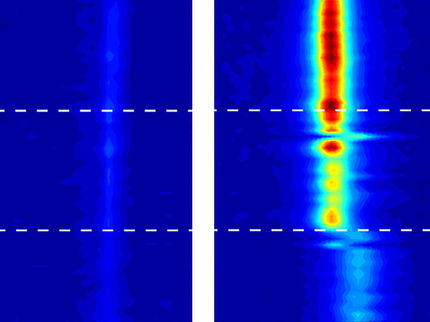New study on carbon nanotubes gives hope for medical applications
A team of Swedish and American scientists has shown for the first time that carbon nanotubes can be broken down by an enzyme – myeloperoxidase (MPO) – found in white blood cells. Their discoveries are presented in Nature nanotechnology and contradict what was previously believed, that carbon nanotubes are not broken down in the body or in nature. The scientists hope that this new understanding of how MPO converts carbon nanotubes into water and carbon dioxide can be of significance to medicine.
“Previous studies have shown that carbon nanotubes could be used for introducing drugs or other substances into human cells,” says Bengt Fadeel, associate professor at the Swedish medical university Karolinska Institutet. “The problem has been not knowing how to control the breakdown of the nanotubes, which can caused unwanted toxicity and tissue damage. Our study now shows how they can be broken down biologically into harmless components.”
Carbon nanotubes were once considered biopersistent in that they did not break down in body tissue or in nature. In recent years, research has shown that laboratory animals exposed to carbon nanotubes via inhalation or through injection into the abdominal cavity develop severe inflammation. This and the tissue changes (fibrosis) that exposure causes lead to impaired lung function and perhaps even to cancer. For example, a year or two ago, alarming reports by other scientists suggested that carbon nanotubes are very similar to asbestos fibres, which are themselves biopersistent and which can cause lung cancer (mesothelioma) in humans a considerable time after exposure.
This current study thus represents a breakthrough in nanotechnology and nanotoxicology, since it clearly shows that endogenous MPO can break down carbon nanotubes. This enzyme is expressed in certain types of white blood cell (neutrophils), which use it to neutralise harmful bacteria. Now, however, the researchers have found that the enzyme also works on carbon nanotubes, breaking them down into water and carbon dioxide. The researchers also showed that carbon nanotubes that have been broken down by MPO no longer give rise to inflammation in mice.
“This means that there might be a way to render carbon nanotubes harmless, for example in the event of an accident at a production plant,” says Dr Fadeel. “But the findings are also relevant to the future use of carbon nanotubes for medical purposes.”
Original publication: : Valerian E. Kagan, Nagarjun V. Konduru, Weihong Feng, Brett L. Allen, Jennifer Conroy, Yuri Volkov, Irina I. Vlasova, Natalia A. Belikova, Naveena Yanamala, Alexander Kapralov, Yulia Y. Tyurina, Jingwen Shi, Elena R. Kisin, Ashley R. Murray, Jonathan Franks, Donna Stolz, Pingping Gou, Judith Klein-Seetharaman, Bengt Fadeel, Alexander Star, Anna Shvedova; “Carbon nanotubes degraded by neutrophil myeloperoxidase induce less pulmonary inflammation”; Nature Nanotechnology 2010.
Topics
Organizations
Other news from the department science

Get the chemical industry in your inbox
By submitting this form you agree that LUMITOS AG will send you the newsletter(s) selected above by email. Your data will not be passed on to third parties. Your data will be stored and processed in accordance with our data protection regulations. LUMITOS may contact you by email for the purpose of advertising or market and opinion surveys. You can revoke your consent at any time without giving reasons to LUMITOS AG, Ernst-Augustin-Str. 2, 12489 Berlin, Germany or by e-mail at revoke@lumitos.com with effect for the future. In addition, each email contains a link to unsubscribe from the corresponding newsletter.



























































